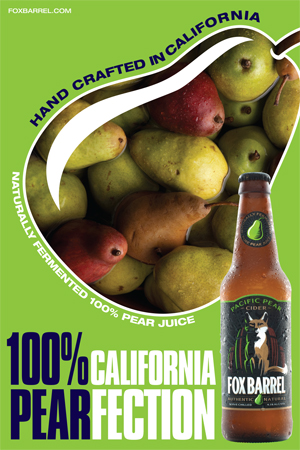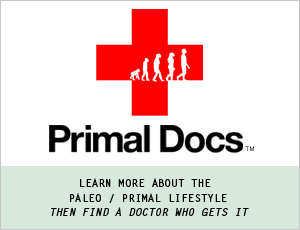Eight years ago, a very dear friend of mine was diagnosed with schizophrenia. Since then, they’ve been through hospital after hospital, doctor after doctor, with insurance and without insurance and everywhere in between. They’ve been in county hospitals, residential facilities, and fairly close to being in homeless shelters at times.
As hard as this has been to watch unfold, I’ve done my best to remain a friend and support them in any way that I can. This hasn’t always been an easy task as I am often the focus of their delusional beliefs and conspiracy theories. So far, I’ve been able to rationalize it all and know that this is the illness talking and not my friend. While I know I’ll probably never get my friend back in the way that they used to be, there will always be a part of me that hopes so.
This leads me into a few issues that I have about diet and how it relates to illness. While I have some obvious opinions about how gluten (and all grains) can have a negative impact on the health of everyone (not just those with celiac disease), I’m not one who will preach to people and insist that everyone go on a gluten-free diet (that’s not to say that I would love this), but for people who know me, they know what my opinions are. One thing that I’ve noticed — especially in the context of my friends hospitalizations and treatment — there has never been one shred of concern with diet as part of their treatment. My friend is a vegetarian and while in the hospital, they usually survive on things like salad, mac & cheese, and juice. This is the menu that’s offered to a vegetarian by a hospital dietitian? Hardly a diet to promote health and wellness.
I recently came across the writings of Dr. Emily Deans, a psychiatrist near Boston who talks in depth about the possible connection between gluten and mental illness. Her blog, Evolutionary Psychiatry is full of wonderful articles on this topic and some of which I’ve shared here before. On a few occasions, I’ve brought this topic up with my friend’s doctors, most of them dismiss it before I can even finish my first sentence. Why is there such a concerted effort to not look at food as a possible cause? I’m not saying that it is the cause, but isn’t it at least worth looking at? It kind of reminds me of doctors not recognizing that cigarettes had an impact on health back in the 1950’s — maybe 50 years from now (hopefully it won’t take that long), doctors will recognize the necessity of real food as a first line of defense against disease.
With people getting sicker and sicker and a nonsensical business model of treating disease instead of learning to prevent it in the first place — I wonder how long it will take folks to make the food connection on their own. If people do make that connection, then doctors will take notice and start to move in the right direction. Doctors now cater to people’s quick-fix mentality of taking a pill to fix something after it’s broken. I guess doctors work off of the same supply and demand model that most businesses work on.
For the sake of my friend as well as the millions of other people suffering from a chronic illness, I hope this shift in attitude happens sometime soon. I’m not sure that it will, but again, it’s something I can hope for.







7 comments
kb says:
Jul 2, 2011
Oh my gosh! You actually wrote MY story of dealing with a former dear friend whose son has schizophrenia—-I too have been the focus of the delusions and conspiracies that I had to back away. He too has been in and out of hospitals, mental health facilities, police restraint etc. In fact, before the schizo diagnosis, I was gently suggesting that many of his problems could very well be diet related, as he was diagnosed initially with Asperger’s—shown to respond to a GFCF diet. When she finally told me that my kids were skinny because I starved them because I was a food Nazi and that all of our ‘symptoms’ were due to my hypochondria—-I knew it was time to back away. The pill pushing medical system has them firmly in their grasp—-with diet completely ignored in the disease process. Sadly, diet is even more ignored when it comes to mental illness. I personally experience and see the effects gluten exposure has to my very own family on our mental affect—-causing anxiety, depression, rage etc. It’s hard to watch someone else go through it, try to make suggestions, but have the Mainstream Medical Establishment poo-poo diet regarding any disease process. In fact, it’s killing people and disabling them every day.
Katie Berry says:
Jul 2, 2011
I just recently went throught this with a dear friend whose son was recently diagnosed with schizophrenia—-after escalating diagnoses of ADD, Tourette’s, anxiety/depression, Asperger’s etc. His brain is obviously being harmed profoundly by his diet, which is based almost completely on candy and high gluten junk food. When she told me our symptoms were due to my hypochondria and my skinny kids were due to me being a food -azi—-I had to back away from her conspiratorial delusions. Apparently, the mental health ‘professionals’ that her son is continually dealing with in hospitals and mental health facilities have her convinced that food has nothing to do with this—-he just needs the right medication. Or large amounts of marijuana. It’s devastating to watch Medical Personnell destroy other humans.
Gfree Fl Chick says:
Jul 2, 2011
I can not agree more with this article, but a year ago I would have thought it sounded completely nuts. I was seeing numerous doctors for numerous things… Most of which I thought had nothing to do with my stomach. I did have some stomach issues and began playing with my diet and with the help of one of my doctors… An ob/gyn I figured it out. My wish is that more doctors will really get it. They are going to be the ones to get to our society. We all need to keep educating. I though do have family members and friends that I can tell don’t believe a word I say. I am 5 months into gfree and just got off of meds that I needed desperately 6 months ago.
Laura says:
Jul 2, 2011
8 years ago, before being dianosed with celiac disease I was on a cocktail of medication for bipolar disorder. About 6 months after being diagnosed & going gluten free, I slowly started going off of medications. I now am free of all medications except a tiny dose of anti-depressants after the birth of my second child. Going gluten free has completely changed my entire life for the better! Great article! Thank You!
Georgie says:
Jul 2, 2011
In my situation I believe focusing on a well balanced diet was the key, not gluten free eating. I went gluten free for 3 months which did nothing, but drain my wallet. I was sick for over 4 years, on a variety of medications, vomiting all the time and in constant pain. I have bipolar disorder which I was also taking a large amount of medication for. When my weight dropped to 85lbs I was hospitalized by my doctor and treated by staff as if I was anorexic even though I had already seen a psychiatrist who stated I was not showing a single sign of anorexia nervosa, but due to a lack of nourishment my mind and body were suffering the same as if I were. I spent a week in the hospital being served meals that in no way, shape or form met the food guide requirements. Mac & cheese, bread with hydrogenated margarine, jello three times a day, fruit “drink” instead of juice…..eventually with the help of a dietitian we tried everything, gluten free being just one, until there were no options left except for exploratory surgery. The stomach issues were corrected and today I weigh 135lbs. Before becoming well I was a junk food junkie to the extreme! After my surgery I adopted a healthy attitude towards food and I take very little medication now. A small dose of antidepressants for my bipolar disorder, nothing at all for my stomach, for the first time in 10 years! When I was in the hospital they didn’t even seem to care what I ate just as long as I ate it and kept it down! Even after the knowledge that this was not a mental issue but a FOOD issue! Gluten free wasn’t the way for me, but for many others it is. Doctors really should take into account the fuel that powers the body. We wouldn’t get far putting water in our gas tanks, would we??
Chris says:
Jul 2, 2011
Thanks for the comment Georgie. Do remember that a gluten-free or grain-free doesn’t have to be about the expensive packaged gluten-free food you see at the market. It’s about whole foods like meat, vegetables, fruit, etc. that are naturally gluten-free (and grain-free). As I’ve said quite a few times, I think ANYONE would be healthier if a diet like this was adopted. I’m so happy to hear that you’re doing better, it’s nice to see when people take their health into their own hands and take responsibility for what they put in their mouth. Congrats!
Anonymous says:
Jul 3, 2011
What a great article. Diet plays such a huge role in all parts of our health. I really wish more doctors and medical professionals consider the role that diet plays. I have found that my mental health and energy level has increased so much since going gluten free.